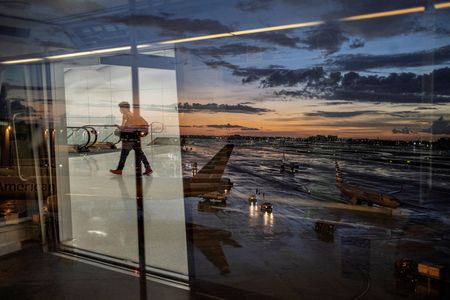 1
1 1
1


By David Shepardson
WASHINGTON (Reuters) – The Federal Aviation Administration (FAA) said Wednesday it will boost air traffic control staff in Florida after bad weather and space launches have often snarled flights in recent months.
The FAA met with about a dozen airlines, general aviation representatives and associations on Tuesday “to find solutions to meet the growing demand in Florida” for air travel.
The agency added that “because representatives said Florida operations will continue increasing past 2019 levels, the FAA will immediately increase the number of authorized staff at Jacksonville Center and evaluate other Florida facilities.”
Since September, several major U.S. airlines have been forced at times to cancel hundreds or thousands of flights after severe weather disruptions, particularly in Florida. A rising number of space launches from Florida have also impacted flight schedules.
JetBlue Airways said last month it was reducing its originally planned summer schedule by more than 10%.
JetBlue President Joanna Geraghty told investors its operations were slammed by severe weather compounded by air traffic control challenges “particularly across Florida and the Northeast.” In total, 45% of JetBlue flights touch Florida.
Southwest Airlines has also at times cited air traffic control issues in Florida for flight woes. In October, Southwest canceled more than 2,500 scheduled flights in a three-day period, citing unfavorable weather and air traffic issues in Florida.
The FAA said Wednesday it would “continue meeting with all users of the Florida airspace throughout the summer to continually improve the operational efficiency of the system.”
The agency added it “will also work with stakeholders to develop a playbook to keep aircraft moving safely when weather, space launches or other events constrain capacity.”
Air traffic officials will increase the ability for airlines to keep aircraft moving “during these events by using alternate routes and altitudes when possible.”
(Reporting by David Shepardson; Editing by Marguerita Choy)